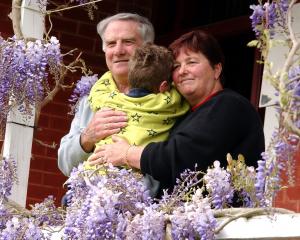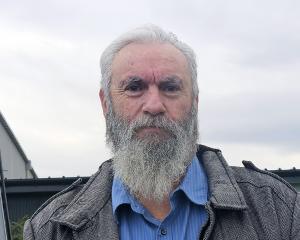
I ask him: ''How are you feeling, Sam?''
He comes over to tell me he's feeling great - much better every day.
And after a few cursory questions about his holidays, he asks: ''Can I go back and play now?''
Clearly, he has no time for talking to newspaper reporters.
That's probably because he's making up for lost time.
This time last year, Sam was in a hospital bed, hooked up to all kinds of tubes and wires, with a massive bandage on his head.
He had just had major surgery to remove an orange-sized tumour from his brain.
It took surgeons at Christchurch Hospital seven hours to remove the benign tumour from his cerebellum - a region of the brain at the base of the skull that is important for its role in motor control.
At the time, there were fears for Sam's long-term future.
Fortunately, cerebellar damage does not cause paralysis, but it can produce disorders in fine movement, equilibrium, posture, and motor learning.
But over the past year, Sam has undergone physical rehabilitation, and his life has returned to some semblance of normality.
His mother, Sandra, said by year's end, he had been able to return to St Clair School for five half-days a week.
''He gets out and plays with his friends, like normal boys do.
''You know what boys are like - they like to get out there and rough and tumble.''
However, Sam had good days and bad days, and still suffered from nausea, pounding headaches, sore eyes, memory loss and occasional dizziness, she said.
''When he gets really tired, he has mood swings and gets quite unreasonable. It's just too much for his little brain, so he has this huge melt-down.
''We just take each day as it comes,'' she said.
''We still really won't know very much about how his recovery is going until [later this] year because of the healing process from his operation.''
Sam was not the same ''little boy'' that he was before the tumour was removed, Miss Stainer said. The operation had altered his personality.
Compared with other children his age, Sam had now become more philosophical about life, she said.
''If something happens, he still has a bit of anxiety and gets a bit worried that it might be something more serious.''
Sam had come a long way, but there was still a lot of progress to be made.
''We're still confident he will make a full recovery.''












